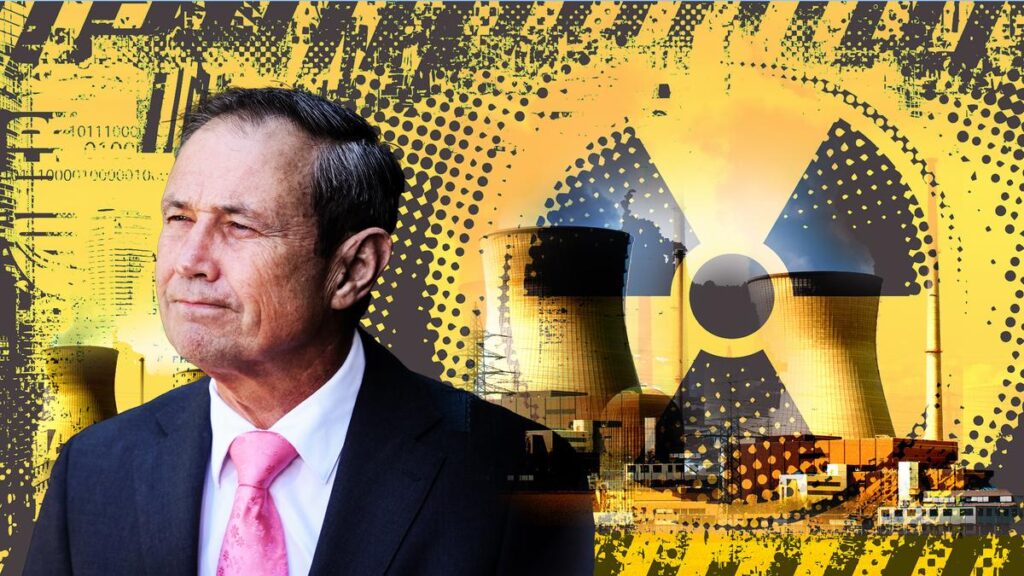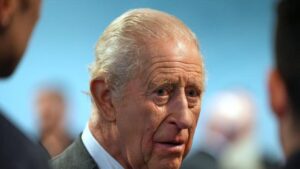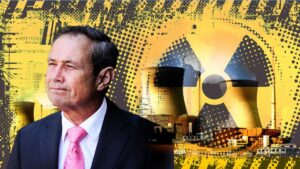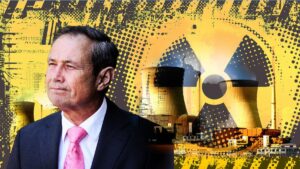
Cook Government not promoting Uranium Mining llustration: Don Lindsay
Western Australia (WA) has the potential to become a significant player in the global uranium market, according to Simon Corrigan, founder of Corporate Affairs Australia. In light of recent discussions led by Premier Roger Cook on promoting WA’s resources in Asia, Corrigan highlights the absence of uranium in the state’s resource narrative as a missed opportunity.
The Premier’s focus on liquefied natural gas (LNG) and carbon capture technology is commendable, as these efforts aim to assist trading partners in their decarbonisation efforts while generating local employment. However, Corrigan argues that WA’s uranium sector could also play a vital role in meeting global energy demands if given the chance.
Uranium exported from Australia, regulated by stringent international safeguards and the International Atomic Energy Agency, is exclusively used for energy generation. Corrigan emphasizes that WA would adhere to the same rigorous standards. He urges stakeholders to view the recent debates surrounding nuclear power not as a deterrent but as an opportunity to discuss the potential of uranium mining in the state.
Countries around the world, particularly those lacking abundant natural resources, are increasingly looking to nuclear energy as a reliable and low-carbon power source. For instance, France generates approximately 67 percent of its electricity from nuclear power, utilising 57 reactors. Other nations such as Belgium, Sweden, Switzerland, and Finland also rely on nuclear power, while the United States, despite its significant gas reserves, derives nearly 20 percent of its electricity from this energy source.
With WA’s current ban on uranium mining reintroduced after the 2017 election, Corrigan believes the state is missing critical opportunities to diversify its mining sector and generate substantial economic returns. He cites estimates from the Chamber of Commerce and Industry of WA, which indicate that a robust uranium sector could create up to 9,000 jobs and contribute approximately $1 billion annually to the economy.
WA’s reputation as a world-class mining destination is well established, but the landscape of global competition is evolving. To maintain its status, Corrigan advocates for the development of uranium resources to meet the growing energy needs of countries seeking reliable alternatives.
Drawing from his experience as Head of Corporate Affairs at BHP’s Olympic Dam, Corrigan recalls the positive impacts of a successful uranium project on local communities and businesses. He suggests that if such success is achievable in South Australia, it can certainly be replicated in WA.
Recently, Premier Cook’s comments indicating a potential openness to uranium mining have sparked hope among advocates for the sector. For those frustrated by the ongoing ban, even a minor acknowledgment that WA is “watching this space” feels like progress.
Corrigan notes that lifting the ban on uranium mining would not require legislative changes; a simple policy shift from the Premier could pave the way for a thriving uranium industry by the end of the decade. He argues that the narrative around WA LNG as part of the “global solution to reducing emissions” can similarly apply to uranium exports.
In conclusion, Corrigan asserts that unlocking WA’s uranium sector presents a win-win scenario for the state. It offers the potential for economic growth while addressing the pressing energy needs of many nations. With strong regulatory frameworks and a skilled workforce in place, the time has come for WA to reconsider its position on uranium mining and harness the benefits it could bring.






